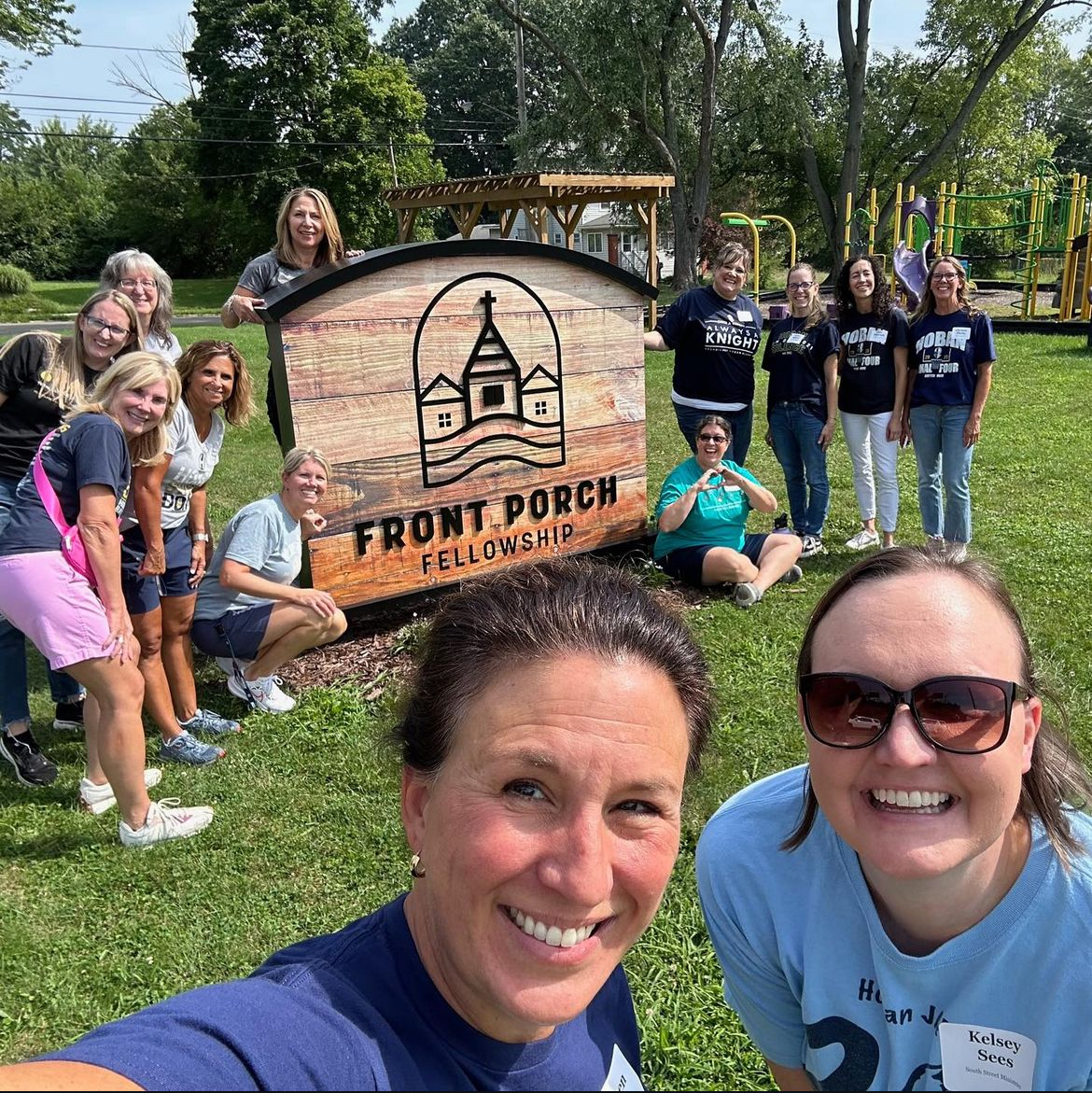Have you ever observed students in the Makerspace after school, diligently working on various projects? Have you found yourself curious about what exactly transpires in that space and how to become a part of it? Well, Science Olympiad might just be the club for you!
Working after school nearly every day of the week, students involved in Science Olympiad engage in various projects. From earth and space sciences to technology and engineering, this diverse club accommodates various fields of study.
Dr. Diane Vrobel led this year’s group of students alongside Diane Cook, Paul Billig, and Amie Mancine. 15 participants, ranging from freshmen to seniors, band together to prepare for invitational competitions where they face other schools to obtain medals.
“We try to give our members an event to compete in that they are really passionate about,” Vrobel comments. “The mismatch of different topics really attracts different types of people.”
Senior Kay Plaspohl, one of the team captains, sees the club as an excellent way to delve into the scientific aspects she is most passionate about. “In Science Olympiad, we do not have to be smart or love science to be involved, but we find that we act the strongest in spirit and passion rather than the scope of general intelligence,” Plaspohl explains.
During invitational competitions, the group’s main goal is to score high and assess how well each subject has been studied.“We may not score as high compared to the other teams, but the fact that we were able to accomplish certain things helps us prepare for regionals,” Vrobel says.
Throughout the school year, the Science Olympiad team dominated certain subjects in the vast competition range. The team competed in a Boyceville satellite competition in which the teams videotaped and submitted their events. Senior Zach Mancine and sophomore Charlie Mowery received first place in the Scrambler, in which students create a vehicle that is propelled by a hanging mass. An egg is attached to the front of the vehicle, and they must stop the car before it hits the target board. Senior Kay Plaspohl and freshman London White received third place in the Tower event. Students must build a tower out of balsa wood with specific dimensions. They then test it by pouring sand into a bucket. The team with the lightest tower that can hold the most sand wins. Mancine also received seventh place in the air trajectory event. Students craft a device that propels a ping pong ball to a specific distance using air, tubes, and weights. The group that launches their ping pong ball closest to the target wins.
Most recently, the team competed in Solon and ranked eighth for cybersecurity, which is an event where participants are assessed on their cybersecurity knowledge through tests and hands-on tasks. They also placed 22nd for Write-It-Do-It, where one member must write out a description of an object and instructions on how to build it while the other member constructs it from the given description. The team will compete in different invitational competitions until the regionals on March 9.
Senior Syvannarae Finsley, a new team member, says, “There are a lot of things you have to learn quickly, and although they can be intense, it always brings a fun bonding experience with the rest of the team.”
Even if a member is unable to attend many invitationals, they are still welcome to participate in regionals. “We have had alternatives join our team during regionals and states. In the past, some of them have been able to obtain first place,” Vrobel reminisces.
This club undoubtedly accommodates various passions. If you think that the Science Olympiad is the place for you, email Dr. Vrobel at [email protected] for more information.
The Science Olympiad is a dynamic after-school club at our school, offering students a platform to engage in diverse projects across various scientific fields. Led by Dr. Diane Vrobel, along with Diane Cook, Paul Billig, and Amie Mancine, the club’s 15 participants, spanning from freshmen to seniors, prepare for invitational competitions where they compete against other schools.
The club covers a broad spectrum of subjects, allowing members to choose events aligned with their passions. Senior Kay Plaspohl, a team captain, emphasizes that passion and spirit outweigh general intelligence in the club.“We try to give our members an event to compete in that they are really passionate about,” Vrobel comments. Plaspohl builds off of Vrobel’s sentiment, “In Science Olympiad, we do not have to be smart or love science to be involved, but we find that we act the strongest in spirit and passion rather than the scope of general intelligence.”
During invitational competitions, the primary goal is to score well and assess their preparation for regionals. Despite potential lower scores, the team gains valuable experience and insights.
Throughout the school year, the Science Olympiad team excelled in various subjects. In a Boyceville satellite competition, seniors Zach Mancine and Charlie Mowery secured first place in the Scrambler, while Plaspohl and freshman London White claimed third place in the Tower event. Notably, the team recently ranked eighth in cybersecurity and 22nd in Write-It-Do-It at the Solon competition.
Newcomer Syvannarae Finsley notes the intense learning curve but highlights the enjoyable experience as she explains, “There are a lot of things you have to grasp quickly, and although they can be intense, it always brings a fun bonding experience with the rest of the team.”
Even members unable to attend many invitationals can participate in regionals. Dr. Vrobel encourages interested students to email her at [email protected] for more information about joining this diverse and passionate club.
Senior Zach Mancine presenting his air trajectory machine | credits: Natalie Morton
Freshman London White and senior Kay Plaspohl presenting their tower used for the competition | credits: Kay Plaspohl
Some of the Science Olympiad members taking a well-deserved card break | credits: Kay Plaspohl
